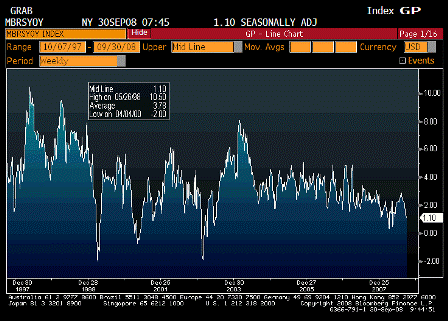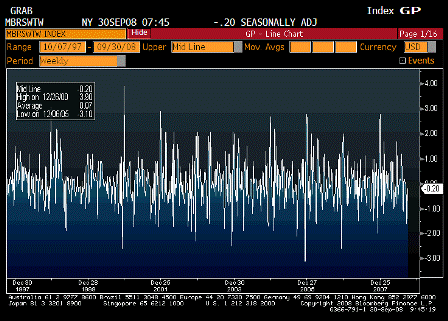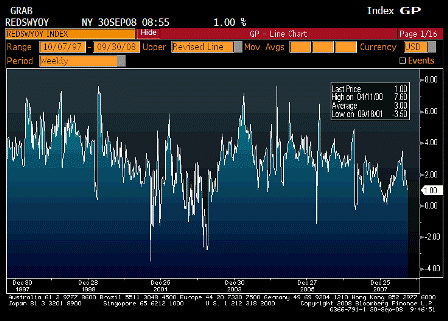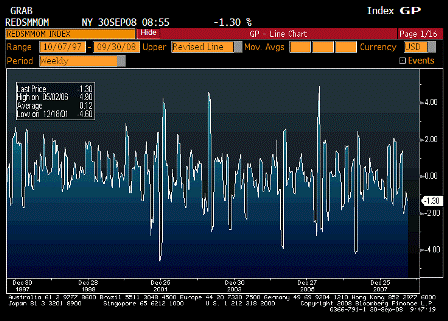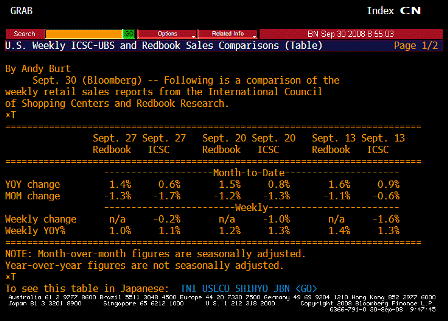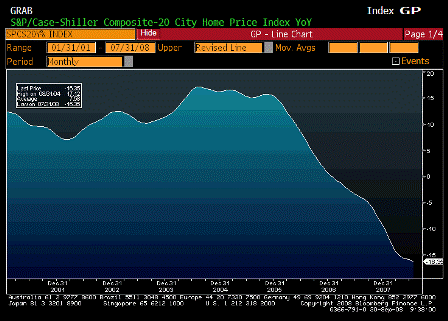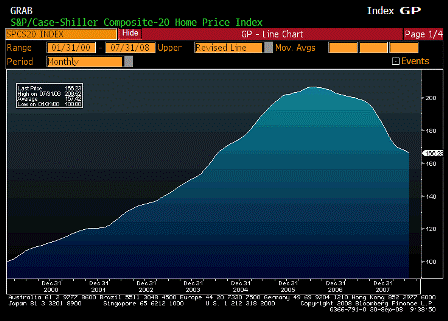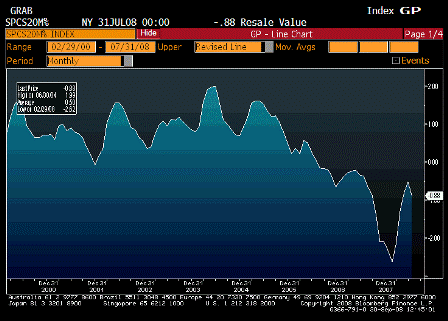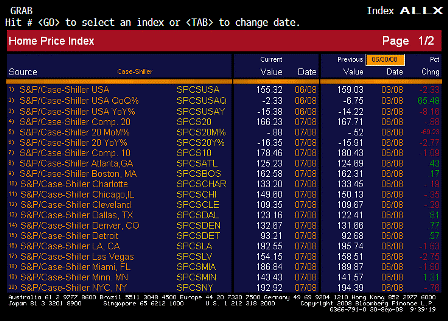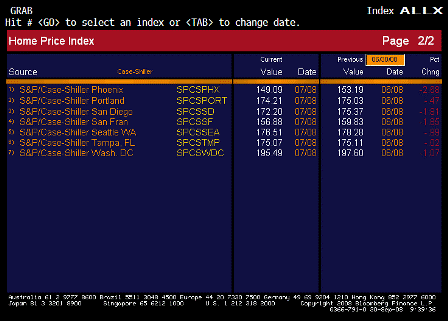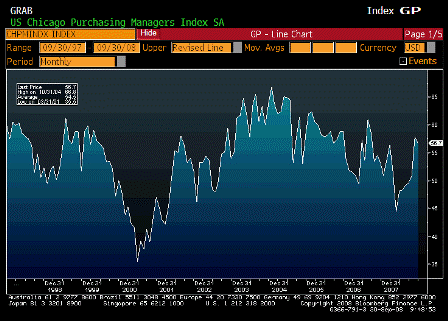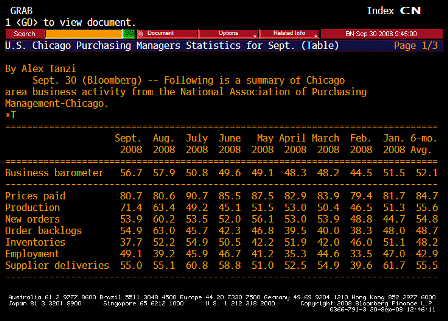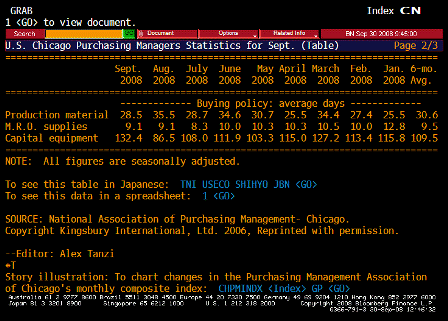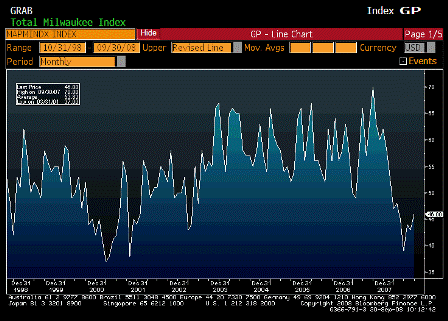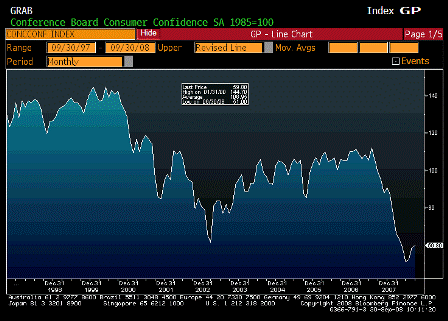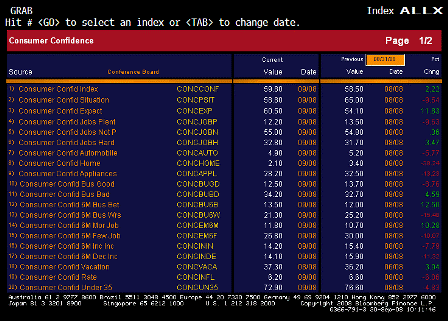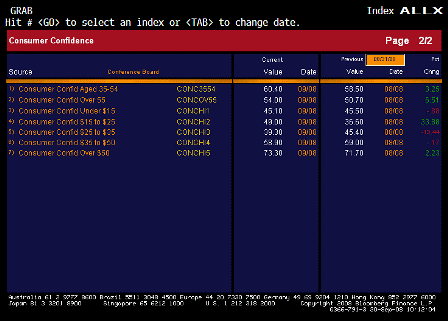Statement of Senator Obama on Moving Financial Legislation Forward
Yesterday, within the course of a few hours, the failure to pass the economic rescue plan in Washington led to the single largest decline of the stock market in two decades.
Might have been worse if they had passed the plan!!!
While I, like others, am outraged that the reign of irresponsibility on Wall Street and in Washington has created the current crisis,
All a result of institutional structure that put the incentives in place in place to do what was done.
Including the way Washington works.
I also know that continued inaction in the face of the gathering storm in our financial markets would be catastrophic for our economy and our families.
At this moment, when the jobs, retirement savings, and economic security of all Americans hang in the balance, it is imperative that all of us – Democrats and Republicans alike – come together to meet this crisis.
The bill rejected yesterday was a marked improvement over the original blank check proposed by the Bush Administration. It included restraints on CEO pay, protections for homeowners, strict oversight as to how the money is spent, and an assurance that taxpayers will recover their money
once the economy recovers.
None of that matters for the ‘success’ of the plan which is doubtful, as it’s not much more than an asset swap, and with the changes, the additions of incentives for CEOs not to participate.
Given the progress we have made, I believe we are unlikely to succeed if we start from scratch or reopen negotiations about the core elements of the agreement. But in order to pass this plan, we must do more.
One step we could take to potentially broaden support for the legislation and shore up our economy would be to expand federal deposit insurance for families and small businesses across America who have invested their money in our banks.
The majority of American families should rest assured that the deposits they have in our banks are safe. Thanks to measures put in place during the Great Depression, deposits of up to $100,000 are guaranteed by the federal government.
While that guarantee is more than adequate for most families, it is insufficient for many small businesses that maintain bank accounts to meet their payroll, buy their supplies, and invest in expanding and creating jobs. The current insurance limit of $100,000 was set 28 years ago and has not been adjusted for inflation.
That is why today, I am proposing that we also raise the FDIC limit to $250,000 as part of the economic rescue package – a step that would boost small businesses, make our banking system more secure, and help restore public confidence in our financial system.
Misses the point. Moving to $250,000 does nothing for the banking system. The cap needs to be removed, and the Fed given the mandate to lend unsecured to member banks in unlimited quantities.
Institutionally, this can be facilitated by extending FDIC insurance to Fed deposits at member banks.
That way, any ultimate bank insolvencies and losses continue to be charged to the FDIC.
I will be talking to leaders and members of Congress later today to offer this idea and urge them to act without delay to pass a rescue plan,” said Barack Obama.
A baby step in the right direction.
Not enough to make a difference.
Doesn’t address the issue of aggregate demand and homeowner’s ability to pay as employment stagnates.
[top]

